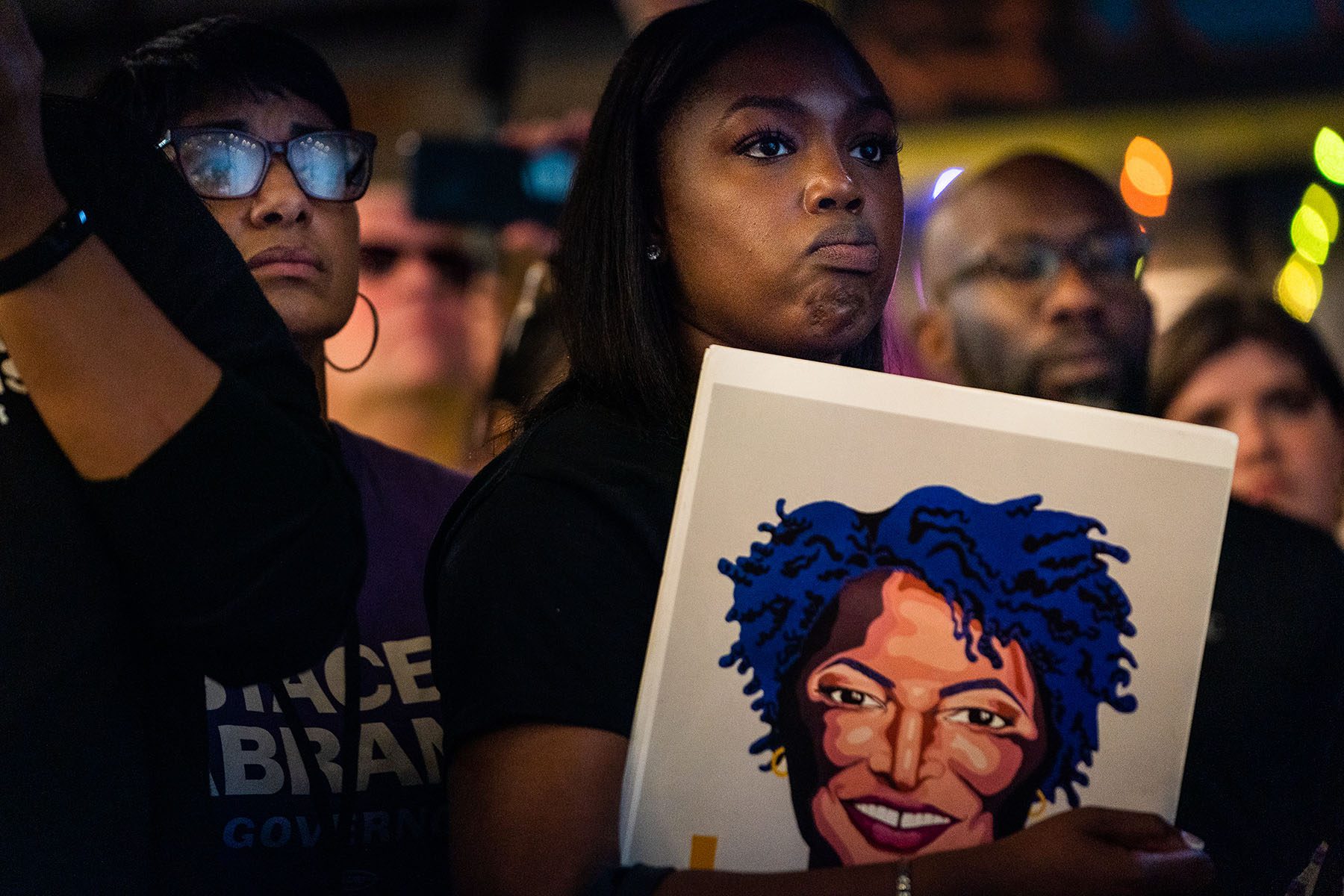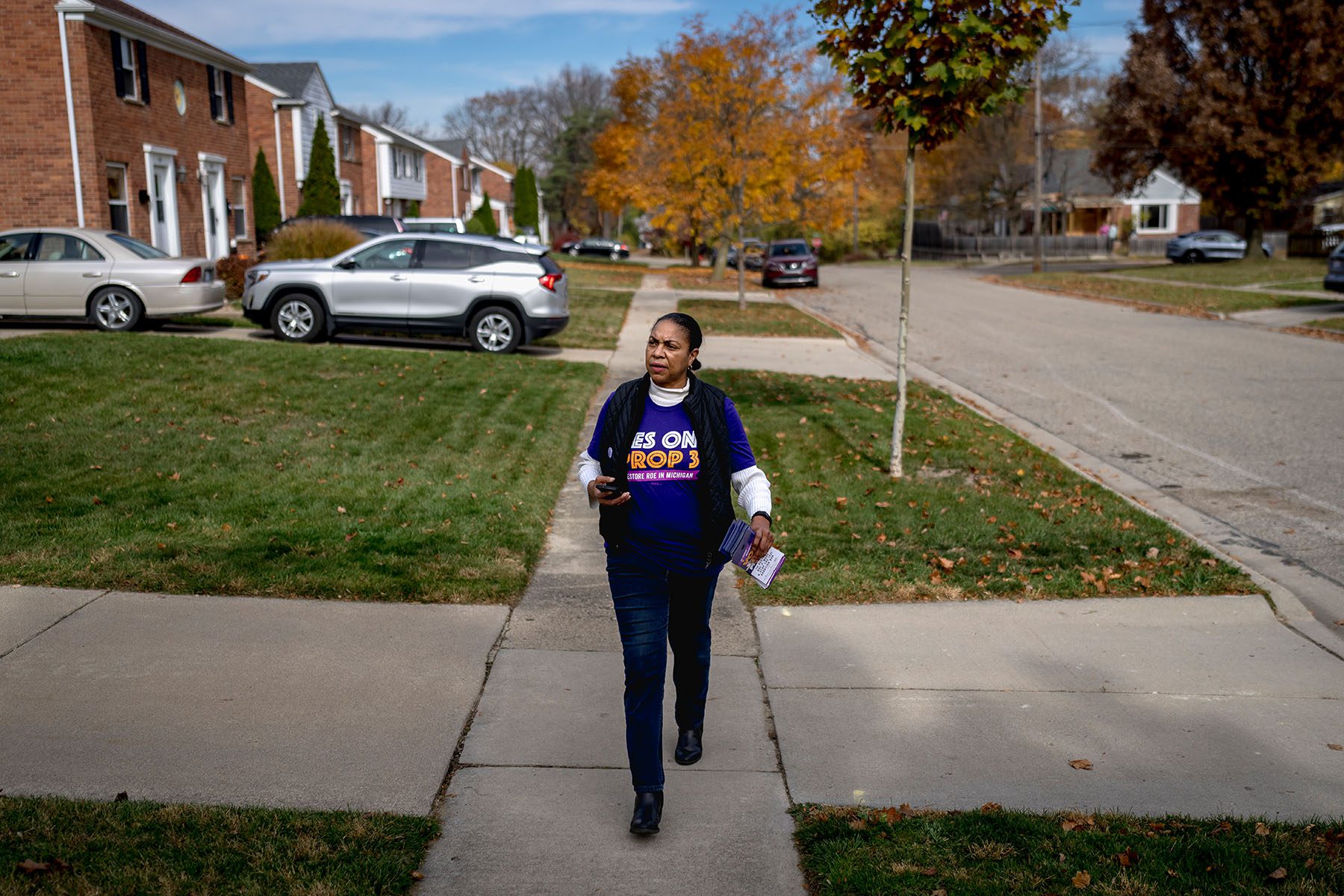We’re making sense of the midterms. Subscribe to our daily newsletter for election context and analysis.
We’ve finally made it (mostly!) to the other side of this year’s consequential midterm elections. Election Day proved to be the only poll that mattered, with what we already know so far bucking predictions from pundits and prognosticators of Democratic doom and a Republican wave of victory.
Key to Democratic success in contravening conventional wisdom at the polls were the women — and in particular, women of color — who ran, organized and voted this cycle. And while Republicans didn’t get all the big wins they were hoping to celebrate, the midterms also held lessons for their party, especially at the state level.
I saw and wrote about a few themes ahead of the midterm, including that women would be the deciders, that abortion and democracy were on the ballot, and that representation matters. I checked in on Wednesday with a few of the women I talked to throughout this cycle to get their early insights and takeaways from 2022, and to see what lessons they think this election holds for our future politics.
Here’s what I am thinking about as results and reactions roll in:
Rights were on the ballot
From the moment the Supreme Court’s decision in Dobbs v. Jackson’s Women’s Health Organization was leaked in May, activists began mounting a response that included organizing to get out the vote in the midterms for candidates and initiatives backing abortion rights.
It was a strategy that appears to have paid off at the polls, said Planned Parenthood CEO Alexis McGill Johnson.
“What we saw last night is that abortion rights and freedom rights really helped us defy history,” said McGill Johnson said Wednesday. “What putting abortion on the ballot did was keep these midterms competitive.”
The women of color leading reproductive rights organizations were at the forefront of that messaging on the campaign trail in key battleground states. On Wednesday, they were claiming victory in races across the country.
Groups including Planned Parenthood, NARAL Pro-Choice America and EMILY’s List, along with Vice President Kamala Harris, framed early on this cycle the stakes at the intersection of democracy, freedom and the erosion of rights, including access to abortion. The aim of their approach was to draw a through line, particularly for voters of color, said McGill Johnson.
“What we saw in the data early on, particularly around voters of color, was that they recognized that abortion rights signaled a harbinger of losing additional rights,” she told me. “Our bodies have always been contested. We understand what it means that when you lose the ability to control your own body, all of the other rights can be taken away.”
As a result, issues including threats to democracy, racism, gun violence, the economy and abortion were simultaneously on the minds of voters as they cast their ballots this year, McGill Johnson said.

Women are still underrepresented
Women make up more than half of the population and the electorate, but that representation isn’t reflected across our government at the federal, state or local level.
The 2018 and 2020 elections swept in a wave of women to Congress, but their record representation still leaves them at only 27 percent in the House and Senate. Some congressional contests are still too close to call, but at least 129 women, including 92 Democrats and 37 Republicans, will serve in the 118th Congress, according to the Center for Women and Politics.
And while Democratic women largely shored up the party Tuesday night, women overall were able to only maintain the status quo in terms of their representation in Congress, due to the more than three dozen woman-versus-woman general election contests on the ballot.
It’s another indicator of progress, said Kelly Dittmar, director of research at the Center for American Women and Politics.
“As more and more women run for office, we should see more and more women running against each other,” Dittmar said, adding that gone are the days where women defer to each other so at least one of them has a better chance at winning.
Another bright spot: A record number of women will serve as governors in 2023, but that number is still only at least 12, up from the previous record of nine first set in 2004. While women are still far from achieving representative rule, it matters to see women as executives who are leading governments. And because the role of governor is often considered a potential pipeline to higher office — including president or vice president — having more women in the conversation can help shatter myths about electability.
Still, with both Democrats Stacey Abrams in Georgia and Deidre DeJear losing their gubernatorial bids, the country has yet to elect a Black woman to serve as governor. And Val Demings in Florida and Cheri Beasley both losing their races for the U.S. Senate means the chamber still has no Black women serving.

The work that Black women organizers and voters have put into democracy has yet to benefit them at some of the highest levels of office, said Democratic strategist Karen Finney, who pointed to these omissions as “stunning.”
“(Abrams) and Black women turned Georgia into a swing state,” Finney noted.
What will it take to get a Black woman governor and more Black women elected to the Senate? A combination of a strong candidate, treating voters of color like persuasion voters, investing in the ground game and a favorable environment in the states they run in, Finney added.
Abortion mattered — and will continue to
Abortion was on the ballot Tuesday, both literally and figuratively. In addition to the candidates whose platforms centered the issue and the voters who prioritized it, there were ballot initiatives on abortion in five states. Voters in California, Michigan, Kentucky and Vermont all turned out to back abortion rights.
While abortion rights groups celebrated these wins and pointed to victories by Democratic candidates who embraced abortion access as an issue, anti-abortion groups said Republican candidates who ran on the issue also won. For both sides, Tuesday’s results proved that the issue was relevant to their voters.
Candidates who clearly articulated their anti-abortion positions and effectively cast their opponents as extreme were successful on Election Night, said Stephen Billy, vice president of state affairs for Susan B. Anthony Pro-Life America.
When Democrats centered abortion in the wake of the Dobbs decision, some Republican candidates ignored the issue or shifted their position, what he called the “ostrich” or “opposum” strategy.
“To think that you could just avoid the issue and not talk about the issue when they have put millions of dollars into making it an issue of the campaign … is malfeasance,” Billy said. “When you don’t talk about it, when you don’t answer the question, when you don’t have a principled response, you get defined, and you let the other side define you.”
Billy pointed to Florida Sen. Marco Rubio, North Carolina Sen.-elect Ted Budd, Ohio Sen.-elect J.D. Vance, and Govs. Ron DeSantis in Florida, Greg Abbott in Texas and Brian Kemp in Georgia as candidates who effectively staked out their positions and contrasted themselves with their opponents.
He said the organization’s efforts going forward must include finding a way to replicate candidate success at the ballot initiative level.
“We weren’t successful in making sure people truly understood the pro-abortion position on the ballot amendments,” Billy explained. “They’re going to try to use ballot initiatives to advance their policy positions and we have to be prepared for that.”

Both sides agree that after a long absence from our politics, abortion is officially back as a campaign issue, as voters set an expectation that they want to know where candidates stand.
“It has been 50 years since the American people have been able to have their voices heard on this issue, so they’re going to make sure their voices are heard now,” Billy said.
McGill Johnson agreed that abortion will be a perennial issue.
“The stock market will go up and down, gas prices will go up and down, inflation will go up and down, but when rights are taken away, that is a generation of fighting back,” she said. “To really recognize the importance of elections related to our fundamental freedoms is important and a huge win, not just for abortion rights, but really for democracy.”
This year’s midterm elections were not just about candidates but about voters’ power. We saw voters in both parties exercising that power early and on Election Day. Any notions of a lack of voter enthusiasm were dispelled.
Control of key states is still yet to be determined, as is which party is in charge in each chamber of Congress. Both parties have takeaways from this year’s results — and we’ll soon see how they wield the power voters entrusted to them, and how voters will continue to hold them accountable as they govern.







